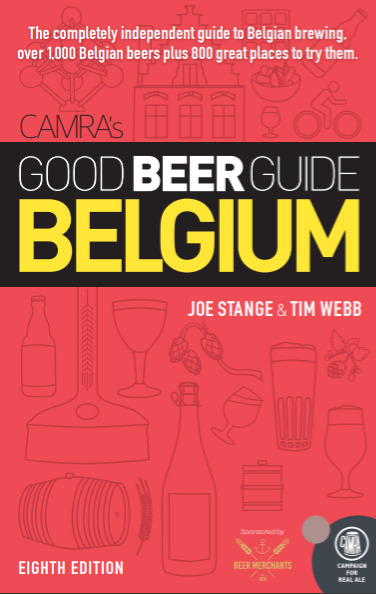As a reminder that beer is part of the wider food business and its trends, here is an article from the weekend, from the AP's food industry writer: "As tastes change, big food makers try hipster guises."
The headline and top of the article are preoccupied with "hipsters," which is a distraction. What really jumps out are the companies -- I don't care about their size -- arguably using deception to appeal to a crowd searching for something unique.
There are obvious parallels there with the "fake brewers" issue that troubles Belgian beer people. Even the Wall Street Journal covered it. I'm also seeing it happen in Germany, as people naturally want to cash in on "craft" and its higher price tag.
At least one of my editors is tired of this topic. [Deep sigh.] I'm clearly not done beating the horse though. Because nothing has changed, really. It still kicks. Well, it kicks me anyway.
Part of researching Belgian breweries is trying to sort out which ones are actual breweries and which are pretenders. That way we can tell you about them. There are all sorts of pretenders, many shades of gray. I try to stick to this: A "brewer" is someone who actually brews beer, while a "brewery" is a building with a functioning brewhouse inside.
If that seems simple, it's not.
One day soon I aim to compile a list of offenders, rather than just single out one or two. I've been told that's unfair, to name only a few liars when there are so many more. I disagree, a liar's a liar... but it's not a black-and-white issue. This deception is a symptom of a permissive culture. And we -- beer drinkers, writers, whoever -- are the ones who have permitted it. Because it's only beer, right?
We allowed the language to slip because it didn't seem to matter. Even Ratebeer refers to these beer commissioners as "contract brewers" or "client brewers," both plainly inaccurate in my view. If you are a trained, experienced brewer who sometimes hires other breweries to make your recipe, you are not a brewer in the context of that beer. Sorry.
That might sound petty. I prefer accurate. As an ongoing project I'm trying to connect the clearest meaning of those words -- "brewer" and "brewery" -- with a really simple public interest. Specialty beer is getting more attention these days, but more to the point: People just want to know from whence their food comes. Here is an idea -- radical, I know -- but why not put the place of manufacture on the label?
Here is the truth, ask a homebrewer: Any asshole can come up with a good recipe and email it to a brewery. And why shouldn't you? There is money in it, there is margin. "Craft" has market cachet. So does "Belgian" for that matter. It's a sensible business arrangement. Nobody will hold it against you -- just be honest about what you're doing. (Also, be prepared to get your ass out there and sell, or else don't be disappointed when distributors want nothing to do with it.)
Well, I shouldn't say "nobody" will hold it against you. Some real, actual brewers are pretty pissed off about the "beer firm" phenomenon. After all, they're the ones who actually crush smelly hops in their hands and scrub out mash tuns, and so on. Many of them went to school for a while or otherwise learned the hard way. I can't say I blame them. They take risks and if a beer goes bad, they're stuck paying for it. Not so for the beer commissioner -- the contract brewery would have to start over and brew it again, at no extra cost to the hirer. Did you know that? That deal sounds better all the time.
Anyway, I'm not a brewer. I'm a writer and a drinker. I want to respect the words, and I want to know where my beer was made. Somehow that is a lot to ask.
A parting thought, after this morning ramble: People are paying extra not for quality, but for variety. Because it's fun to see so many taps and bottles from so many different places. So, how much of that variety is an illusion?






